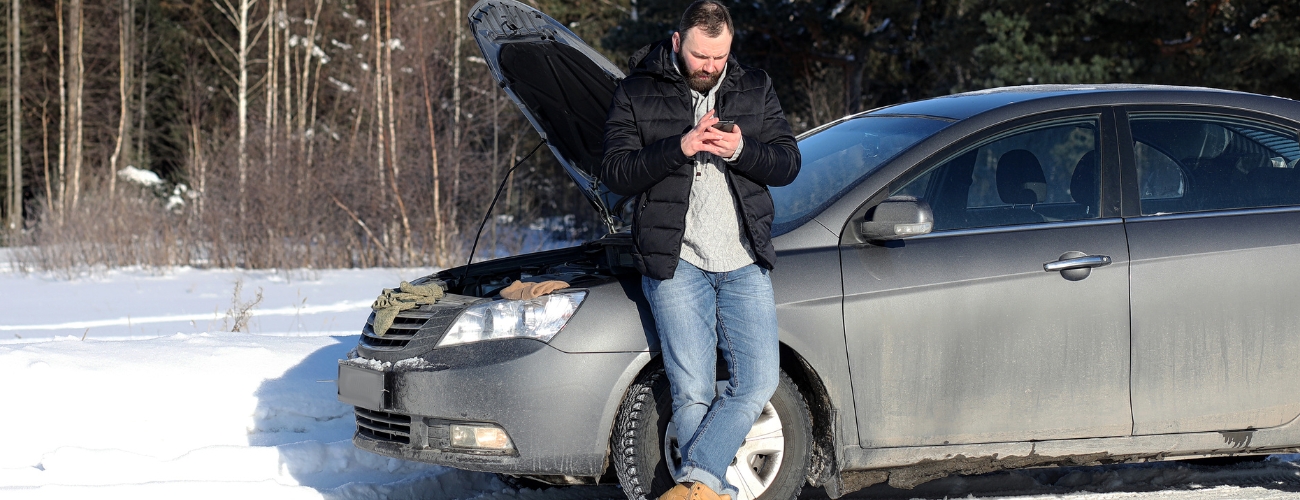November 4, 2024
Sara Davies
Articles
As autumn builds pace, we’re filled with the sense that winter will be upon us in no time at all. To help fleet managers prepare their fleets for winter, we have put together our top tips for looking after your fleet throughout the colder months.
Ten Tips to Prepare Your Fleet for Winter
1. Ask Drivers to Check Vehicles
You should already be asking your drivers to regularly check their vehicles but as we head into the cold months it is even more important that they adhere to these obligations. Areas include the interior and exterior condition, in addition to aspects under the hood. If you have fleet vehicles such as pool cars or minibuses that aren’t assigned to particular drivers then you’ll need to make sure these are checked too.
2. Ensure Checks Include Brakes
Winter road conditions can mean longer braking distances and braking itself can become trickier due to icy roads. So before we enter winter, make sure there aren’t any worn brakes in your fleet. Educate your drivers regarding the signs that the condition of their brakes isn’t optimal. In addition to brakes that make squeaky or grinding sounds, other clues include the vehicle pulling to one side and the brakes feeling spongy when they start the vehicle. Drivers should be encouraged to undertake emergency braking at a safe opportunity to test their brakes.
3. Replace Old Batteries
Batteries are most likely to die during the winter months, when they find it harder to conduct energy. Batteries mostly have a limited lifespan of between three and five years so if you have models in your fleet approaching this age, you should consider the possibility of needing to replace their batteries. Brief your drivers regarding the signs of a failing battery, as winter approaches, including:
- Ticking over several times before starting
- Needing a jump start
- Loss of power to components including the radio, electronic locking system or windows
- A warning light on the dash
4. Keep Servicing Up to Date
Though important all year round, regular servicing is particularly important during the winter months to keep your fleet as safe as possible and ensure you spot any early warning signs of bigger issues in a timely manner.
5. Assign Winter Kits to Vehicles
A winter car kit is advisable for all drivers and what is included will depend on your drivers’ needs. You can provide the same kits across the board if it makes sense to, or vary it depending on the department and their needs, where necessary. Kits often include a warning triangle, a hi-vis jacket or vest, a bottle of water, a torch, a shovel and a first aid kit.
6. Refresh Drivers on Safe Driving
We advise reminding drivers of safe driving practices in the winter. An emailed flyer with a few key bullet points can work wonders, or you may feel it is more appropriate to deliver a detailed training plan, tailored according to department.
7. Remind Drivers of Emergency Contact Details

The three key numbers to ensure that your drivers know are:
- The fleet management team
- The out of hours maintenance team
- The breakdown cover provider
You might have other essential numbers or these teams might be one and the same. Regardless, it is sensible to remind all of your drivers to keep these numbers safe in the event of an emergency on the roads. Why not send out an email with a clear subject so drivers can easily find the details on their devices if they’re ever needed?
8. Stock Up on Anti-Freeze
Now is the time to check which of your fleet vehicles need which types of anti-freeze, ensuring that those vehicles in your fleet that need it during the winter are catered for, prior to the cold weather setting in.
9. Clean Your Fleet
Getting your fleet cleaned before winter begins, makes it easier to spot certain potential problems, such as chipped glass or damaged paintwork. A clean and clear interior is less likely to attract small animals and prevents dirt and rubbish from damaging the interior. Why not arrange a day on site when all of your drivers can get their vehicles cleaned and complete other winter preparations?
10. Offer Winter Driving Training
Support more cautious drivers or those regularly driving in more challenging weather conditions by offering them additional winter driving training. We offer a number of different driver training courses available for you to choose from but online courses are often particularly useful, allowing your staff to work at their own pace, and with the ability to be tailored to their individual needs.
If you’d like to learn more about driver training and how we can help you with that then please get in touch with the team on 01722 322 888.
Enjoyed this article? Read more of our latest blogs below:
- Political Context of the Rise in Electric Vehicles
- Should I Extend the Manufacturer’s Warranty on my Lease Car?
- Best Tech to Support Drivers
- Top 5 Hybrids 2024
For all our latest news and blogs click HERE.
Or are you looking to understand the company car, fleet management or any other aspect of fleet vehicles? If so, then check out our Guide Pages.
